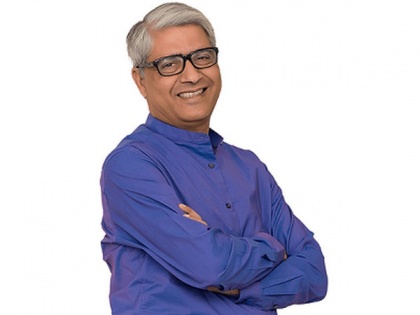Dr Jawahar Surisetti opines on one of the biggest needs of future life on the occasion of World Digital Wellbeing Day
By ANI | Published: June 9, 2020 08:38 AM2020-06-09T08:38:31+5:302020-06-09T12:29:13+5:30
"8th June 2020, is being celebrated worldwide as the World Digital Wellbeing Day," said convenor of WDWD, Dr Jawahar Surisetti, an eminent psychologist and futurist, during the virtual launch event organised by an international, not for profit Religion of Youth (ROY).

Dr Jawahar Surisetti opines on one of the biggest needs of future life on the occasion of World Digital Wellbeing Day
"8th June 2020, is being celebrated worldwide as the World Digital Wellbeing Day," said convenor of WDWD, Dr Jawahar Surisetti, an eminent psychologist and futurist, during the virtual launch event orgsed by an international, not for profit Religion of Youth (ROY).
Dr Jawahar said that this date was chosen for the launch as it is the birthdate of the World Wide Web Founder, Tim Berners-Lee. The aim of the movement is to promote digital minimalism, to get rid of mobile addiction, and to improve happiness and relationships while maintaining a healthy tech-life balance.
According to Dr Jawahar Surisetti, digital wellbeing is a rising need even before the pandemic struck. The pandemic and lockdown have led to people staying indoors and an increased inclination towards a digital lifestyle. This has led to an increase in mobile addiction by children, youth, and families.
Such a lifestyle causes many psychosomatic health issues like depression and excessive screen time causes eye defects, posture issues, lack of physical activity, and loss of interest and concentration in studies.
WDWD aims to create sustained awareness against the excessive use of digital devices. At homes, Whatsapp messages are shared even when the family members are under the same roof and dining tables see mobiles more than the dishes.
The attention is more on screens than on food. People have become more engaged in digital platforms and satellite channels either on Digital TVs or laptops. This results in very little quality time for the family to spend together.
The WDWD movement not just spells out the need for a mobile curfew for three hours at least once a week, but also suggests ways and means to fruitfully engage those three hours with the loved ones. Along with these suggestions, the movement recommends ways to deaddict oneself and increase their as well as corporate productivity.
Offices or workplaces have lost 26 per cent of efficiency due to mobile addiction and ensuing distractions. The bell of a message has become so addictive that one finds it irresistible to check his phone after every few minutes.
Two youths, Jagrit and Jayesh, also joined the bandwagon by developing free mobile applications to help combat this addiction. Jagrit bringing a solution to mobile addiction developed the app called 'Apprison' and Jayesh developed 'Happea' for happiness and peace, both being free apps that could be used for digital wellbeing.
In the future, there is a need to address this issue that encompasses 24 hours a day and 365 days a year. Digital Wellbeing is being touted as the next big thing and a future with clinics with doctors specialising in digital wellbeing, digital wellbeing retreats, and tourism is not far.
WDWD is an effort to create an ecosystem that could sensitise and support the world at large.
For more information, please visit: https://worlddigitalwellbeingday.com/
Youtube: https://youtu.be/MnwjBcitvcU
This story is provided by PRNewswire. will not be responsible in any way for the content of this article. (/PRNewswire)
( With inputs from ANI )
Open in app